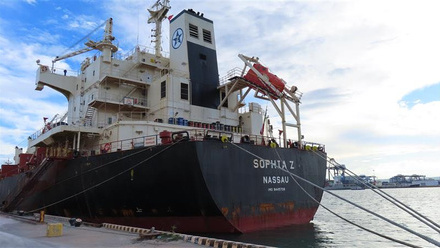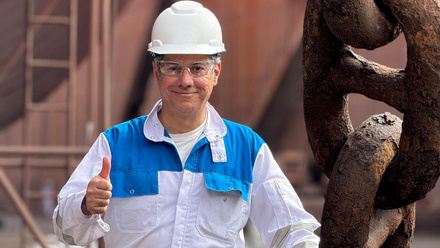Tackling sexual harassment at sea
Sexual harassment and abuse at sea are in the spotlight, following high-profile incidents and shocking worker surveys. Corporate culture needs to change – and quickly.
In 2020, the Safer Waves charity ran a survey that found almost two-thirds of respondents had experienced some form of gender-based discrimination, with over half reporting experiencing sexual harassment, and almost a quarter sexual assault.
“Anecdotal evidence shows that sexual harassment and gender-based bullying at sea is a significant problem,” says Captain Ann Pletschke, a master mariner and operations manager at the charity, which offers support to merchant seafarers who have experienced sexual violence or gender discrimination while working at sea.
“Most respondents felt that it had affected their mental health and career at sea, with the majority also reporting some effect on their physical health and family and personal life.”
Beyond the individual harms, there are also safety implications. Working at sea can be dangerous, and crew members need to be able to trust and watch out for each other to keep everybody safe. Distressed and distracted crew members working in a toxic culture will not perform at their best.
‘Out of sight, out of mind’
Some of the reasons for the prevalence of the issue come down to the unique circumstances of shipping, where seafarers live and work together for weeks and months at a time. It is typically a male-dominated environment, which often has a hierarchical culture and an ‘out of sight, out of mind’ approach. While many companies are now very vocal about gender, diversity and inclusion issues, too often this is just lip service, rather than a catalyst for radical change.
It is coming though – as a result of the Safer Waves research, Devon and Cornwall Police formed a working group to further investigate the challenges facing seafarers in UK waters. This has led to Safer Waves and the University of Winchester working together on a follow-up survey, which will report back to the working group.
Changing corporate culture
In the wake of the #metoo movement, the spotlight is no longer just on ‘rogue’ employees, but on the corporate culture and leadership that enables them.
“Companies need to take sexual harassment and bullying seriously,” says Emily Turner, a communications consultant with 20+ years of crisis management experience, including many years in the shipping industry. “There aren't any excuses that will placate employees, customers, shareholders or the media.”
Captain Pletschke is encouraged that some shipping companies are keen to learn more in a bid to better protect and support their seafarers, and she calls on them to foster a “no tolerance or compromise” culture for harassment or bullying behaviour.
“It is also important that seafarers know where they can turn if they do experience problems,” she says. Different people and situations require different types of support and rectifying action.
“We would like shipping companies to make sure they have measures in place to both offer suitable and supportive mechanisms for reporting and support. This includes signposting seafarers to organisations such as ourselves and other seafarer welfare organisations, in order to give seafarers as much autonomy and choice in how they access support and move on from difficult experiences on board.”
Getting this right will require proactive leadership. “Leaders must address company culture beyond a cosmetic veneer, and prove to employees they can be trusted to manage complaints,” says Turner.
“If they can’t, it will be harder to recruit and will ultimately affect profits. It costs so much more to rebuild a brand’s reputation than it does to manage a situation before it becomes a crisis. That’s the hardest lesson to learn.”
If you have been affected by any issues discussed in this article, Safer Waves offers confidential emotional support.
Take part in the Safer Waves and University of Winchester survey.
Join IMarEST’s Seafarer Mental Health and Wellbeing Special Interest Group by contacting [email protected].






